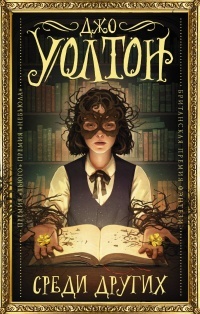I didn’t sleep much last night, and I was reading Anne de Courcy’s excellent biography of Curzon’s daughters The Viceroy’s Daughters (kind of post-research for Farthing) and it struck me how incredible it was that someone could be born before the Boer War and without out-running their three-score and ten, die during the Vietnam war. One of the sisters lived to be ninety, and hence was born during the Boer War and died after the Berlin Wall came down.
I feel a little like Inspector Grant waking himself up to say “Thomas More was Henry VIII”. I can remember being similarly surprised that Samuel Pepys, who everyone knows lived during the Restoration, also lived through the Commonwealth and on past the Glorious Revolution well into the reign of William and Mary.
I’m going to be forty in December. When I was born, there were states in the US where it was still illegal for people to marry if they happened to have different skin colours. I’ve lived through, and entirely missed, the Swinging Sixties, the Vietnam War and the Moon Landing. I came to political consciousness at the time of the Soviet invasion of Afghanistan, Thatcher, and the overthrow of the Shah of Iran. I was a child of the Cold War, I entered adolescence quite sure the world would never last long enough for me to need to worry about growing up. I began work in the Yuppie eighties, I rejoiced and conceived a child when the Berlin Wall came down, I thrived in the optimistic and wired nineties and go on into this darkly worrying twenty-first century.
When I was born, the best computers in the world could do what freebie pocket calculators do now. I lived through the beginning of calculators, early home computers, and when we bought my 286 it was the best computer in the world. (I still think it’s the best computer in the world, and certainly one of the longest lasting and most reliable. I wrote three novels on it and two more on the more moveable clone of it that is my 386 laptop, Caliban.) When I was born we didn’t have a telephone, though richer people did. When we got a telephone, when I was seven, I only knew two other people who had one. I now regard a telephone as only slightly less essential than a fridge. (We didn’t have a fridge either.) And socially, I’ve lived through whirlwinds, revolutions and counter-revolutions. I’ve lived from a world in which one had to have one’s friends in walking distance to one where most of my friends are people I met online.
And if I live thirty, forty more years? What an incredibly thrilling thought. If I live forty more years, forward day by day, in the very-slow-time-machine, if I can look back, will today seem as primitive by comparison as when I was born? Certainly it will seem as distant and exotic and as much part of history and inevitability, where it all now stands open and unknowable.
It brought me to a new appreciation of something I’ve understood for a long time — it’s in the quantum stuff about “now” in Burnt Norton which one day in 1987 Unfolded itself to me on the Metropolitan line between King’s Cross and Baker Street — that here we are, poised in a moment of consciousness in which I write this and you read this, between the cluttered fixity of the known past and the blankness of the unknowable future, and that this unattainable target of “now”, (this moment that cannot be examined because to examine it is to fix it in time, where it recedes under examination, it moves too fast, it only is when it is moving), is the only time in which we can move, can act, can decide, can choose, and hence the only time there is. (Eliot put it all much better in Four Quartets, and doubtless Heisenberg too, for those who read mathematics.)
But how wonderful that here we all are, making history, political, social and technological, making both future and past, making time, as we live and breathe and quietly get on with doing the next thing.


